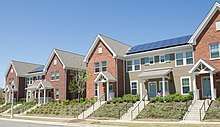
Affordable housing is a critical issue affecting communities worldwide. As urban populations grow and housing prices soar, the need for affordable housing solutions becomes increasingly urgent. While developing affordable housing presents various challenges, it also offers significant opportunities for positive community impact. This blog explores the complexities of creating affordable housing and the potential benefits that come with addressing these challenges.
Challenges in Developing Affordable Housing
High Construction Costs
One of the primary challenges in developing affordable housing is the high cost of construction. Building materials, labor, and regulatory compliance can drive up expenses, making it difficult to keep projects within budget. For developers, balancing quality with cost-efficiency is a constant struggle.
Material Costs: Fluctuating prices for building materials can impact project budgets. Finding cost-effective materials without compromising quality is essential.
Labor Costs: Skilled labor is often expensive, and shortages can lead to higher wages and project delays.
Limited Funding and Financing
Securing funding for affordable housing projects can be challenging. Developers often rely on a mix of public and private funding, grants, and subsidies. However, competition for these resources is intense, and funding constraints can limit the scope and scale of projects.
Public Funding: Government grants and subsidies are crucial but may be insufficient or subject to political changes.
Private Investment: Attracting private investors can be difficult, especially if the return on investment is perceived as low.
Regulatory and Zoning Issues
Navigating zoning laws and building codes can be complex and time-consuming. Local regulations may impose restrictions on land use, building design, and density, which can hinder the development of affordable housing.
Zoning Restrictions: Local zoning laws may limit the types of housing that can be built or impose minimum lot sizes that affect density.
Building Codes: Compliance with various building codes and regulations can increase costs and extend project timelines.
Community Opposition
Community resistance to affordable housing projects is a common challenge. NIMBY (Not In My Backyard) attitudes can arise when residents oppose new developments due to concerns about property values, increased traffic, or changes to neighborhood character.
Perception Issues: Educating the community about the benefits of affordable housing and addressing concerns can help mitigate opposition.
Community Engagement: Engaging with local residents early in the planning process can build support and reduce resistance.
Sustainability and Environmental Concerns
Developing affordable housing in an environmentally sustainable way adds another layer of complexity. Integrating energy-efficient designs and sustainable practices can increase initial costs, though they often lead to long-term savings.
Energy Efficiency: Incorporating green technologies and energy-efficient designs can improve long-term affordability but may require higher upfront investment.
Environmental Impact: Balancing development with environmental preservation is crucial for maintaining sustainable communities.
Opportunities in Developing Affordable Housing
Community Revitalization
Affordable housing projects can revitalize underserved neighborhoods, improving overall community conditions. By investing in these areas, developers can contribute to enhanced infrastructure, public services, and local economic growth.
Economic Growth: New housing can stimulate local businesses and create jobs, benefiting the entire community.
Infrastructure Improvement: Development often leads to upgrades in roads, utilities, and public spaces.
Increased Property Values
Successfully executed affordable housing projects can increase property values in surrounding areas. As neighborhoods improve, property values may rise, leading to broader economic benefits for local residents.
Economic Stability: Improved housing conditions contribute to greater neighborhood stability and investment.
Market Growth: As areas develop, they can attract additional investments and new businesses.
Social Impact
Affordable housing plays a crucial role in addressing social inequality. Providing access to safe and affordable homes helps reduce poverty, improve health outcomes, and support community well-being.
Health Benefits: Safe, stable housing is linked to better health outcomes and reduced healthcare costs.
Educational Outcomes: Stable housing supports better educational performance and opportunities for children.
Innovative Design Solutions
The need for affordable housing drives innovation in design and construction techniques. Developers are increasingly exploring modular housing, prefabricated units, and sustainable building practices to reduce costs and improve efficiency.
Modular Housing: Prefabricated units can be built faster and more affordably, providing scalable solutions.
Sustainable Practices: Incorporating green building techniques can lead to long-term cost savings and environmental benefits.
Partnerships and Collaboration
Collaborating with government agencies, non-profits, and private sector partners can enhance the effectiveness of affordable housing projects. These partnerships can provide additional resources, expertise, and funding opportunities.
Public-Private Partnerships: Combining resources and expertise from various sectors can lead to more successful and impactful projects.
Non-Profit Organizations: Working with non-profits can provide additional support and community engagement.
Developing affordable housing is a multifaceted endeavor that involves navigating significant challenges and seizing valuable opportunities. By addressing issues such as high construction costs, funding limitations, and regulatory hurdles, developers can contribute to creating sustainable and impactful housing solutions. The benefits of successful affordable housing projects extend beyond individual homes, fostering community revitalization, economic growth, and social equity. Embracing innovative design and collaborative approaches can help overcome obstacles and enhance the positive impact of affordable housing initiatives.


![Unveiling the Potential of Pharmaceutical Contract Manufacturing in [2024]](https://www.flexsocialbox.com/upload/photos/2024/04/grkhsxzNsHv3uS5tpEiM_25_a4a821c2657945a7dbfa3a9b8b5d8fbc_image.jpg)
